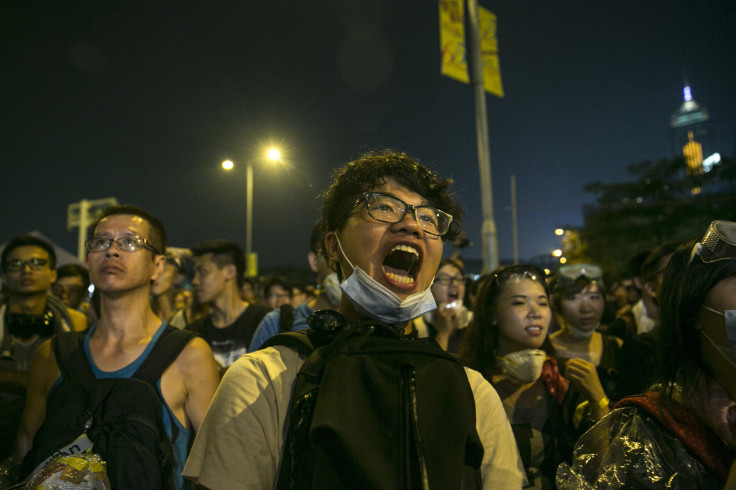Hong Kong Protests: A Fraught Word Reveals Chinese Government's Old Fears Of 'Chaos'

As pro-democracy protests swelled in Hong Kong's central business district, the People's Daily, the Communist Party mouthpiece newspaper in Beijing, used a fraught, familiar word in an editorial warning Occupy Central demonstrators of the consequences of escalation.
"If matters are not dealt with according to law, Hong Kong society will surely fall into chaos," the editorial said.
To observers of modern Chinese history, the word "chaos" -- luan in Mandarin -- resonates deeply. A People's Daily editorial written on April 26, 1989, raised the specter of that exact same thing, using the same word, as thousands of demonstrators massed in Beijing's Tiananmen Square. Weeks later, the People's Liberation Army cracked down violently on the protesters for democracy who were causing, according to the Party, luan.
In the years since Tiananmen, the Chinese media has used luan to describe unrest elsewhere in the world. As the Arab Spring protests gripped the Middle East in 2011, causing authoritarian regimes in Tunisia, Egypt, Yemen and Libya to fall, Chinese media coverage emphasized only chaotic scenes of protest; in an editorial published in April of this year, the ultranationalist Global Times newspaper dismissed the Arab Spring as bringing "nothing but chaos" to the countries in which it erupted.
In his book "Living With Reform: China Since 1989," the historian Timothy Cheek writes that "the avoidance of luan" became the central governing philosophy of Mao Zedong's successor, Deng Xiaoping, whose economic reforms turned China into the powerhouse it is today.
The term has always been part of recent political discourse in China, even in the street: In a widely circulated video from 2011, a Chinese passerby who spotted then-U.S. Ambassador Jon Huntsman at a demonstration in Beijing said to him, "You want chaos for China, don't you?"
Although some of the protesters in Hong Kong remain defiant and have threatened to occupy government buildings, others have acknowledged that the continued disruption of normal life in the territory may cause them to lose sympathy among a public eager to resume work and school. In Hong Kong, as in mainland China, the fear of luan remains a powerful presence in any political confrontation.
© Copyright IBTimes 2024. All rights reserved.






















